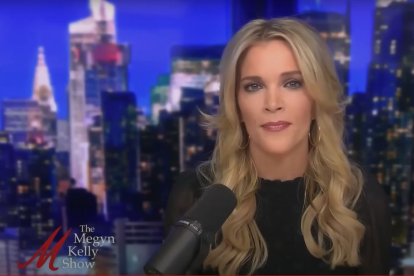Megyn Kelly will no longer refer to people by their preferred pronouns: these are her reasons why
Kelly explained that she used to use each person's chosen pronouns because "it seemed harmless," but now she wonders why she must deny reality to be polite.

(Captura de pantalla)
After speaking about Pride Month, popular journalist Megyn Kelly argued on her podcast that she will no longer refer to people by their chosen pronouns.
Kelly recalled that her first reaction back in the 2000s, was to support the use of one's preferred pronouns because "it seemed harmless and I had no wish to cause offense. ... Trans people had suffered enough by nature of their dysphoria and society's disdain for them in general."
In 2016, she even said that everyone should be able to use the bathroom of their choice, regardless of gender. She also supported children who came out as trans seeking gender-affirming treatment, because "I wanted to be supportive of those who were suffering."
In 2020, however, everything began to change. The key moment came during an interview on "The Megyn Kelly Show" with a health professional and former athlete. The idea was for him to explain the advantages enjoyed by trans athletes, especially after puberty. When Kelly had what she thought of as a slip of the tongue in asserting that "trans girls were biological males," she was met with a fierce backlash, with people calling her statement offensive. She explained that she had simply said it to try to set the record straight, but was left wondering about the "language policing."
"Why did I have to deny reality to be polite?" the TV host began to wonder. Kelly went on to explain that the problem only got worse, as more and more women were losing to their trans peers in women's sports competitions.
She became even more concerned when these ideas, she went on to explain, were then brought into schools. Perhaps the most serious moment was when, after moving to Connecticut, she saw on the news that some women prisoners had been raped by inmates who came out as trans just before they were sentenced.
Kelly named several cases like the above, including that of Lia Thomas. That was the "last straw." Attacks on those who spoke out about the case, such as Riley Gaines, made her realize, "There is the harm."
Using preferred pronouns makes no sense, she concluded, because it opens the door to "lies that lead to real harm, to real women." Kelly further argued that she would support people who genuinely suffered from dysphoria to have their own spaces, but that the solution should not harm women and children.
RECOMMENDATION





















